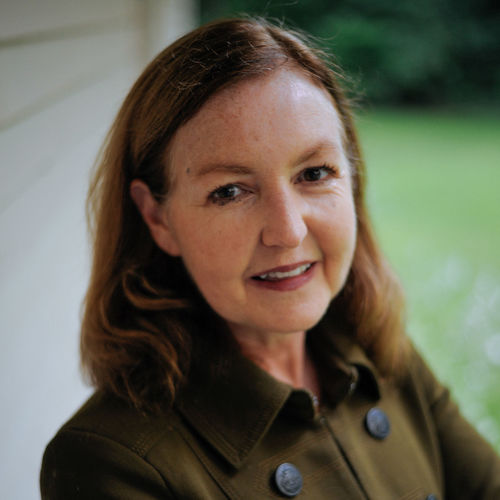
Christine M. Venter is a teaching professor at Notre Dame Law School and affiliated faculty in Gender Studies at the University of Notre Dame.
Among the fundamental core concepts underpinning human rights is the concept that they are indivisible and interdependent. This precept is sorely tested when proponents of religious liberty and LGBTQ+ rights respectively assert that their group’s rights trump the rights of other groups. At a conference last year in Rome, U.S. Supreme Court Justice Samuel Alito asserted that “[r]eligious liberty is under attack in many places because it is dangerous to those who want to hold complete power.” Alito is not alone in his assessment; headlines abound about the threats to religious liberty,whether by the Chinese government in its persecution of Uyghurs, India’s attacks on Muslims, or acts of vandalism against Catholic Churches. The belief that religious liberty is under threat, coupled with incidents like the leak of the Dobbs decision, has created an atmosphere of fear and mistrust. Alito went on to speculate that religiously motivated attacks “probably grow out of something dark and deep in the human DNA—the tendency to distrust and dislike people who are not like ourselves.”
The latter comment might have been made by proponents of LGBTQ+ rights, who similarly fear that the acceptance they have gained in recent years is increasingly coming under attack. Fueled by a spate of discriminatory actions and laws against the LGBTQ+ community, as well as a U.S. Supreme Court decision that upheld the right of a web designer to refuse to create a website for a gay couple, the LGBTQ+ community is similarly experiencing acute fear and mistrust. These feelings were furthered by allegations that the plaintiff (the website designer in 303 Creative LLC v. Elenis) based her suit on an alleged request to create a gay wedding website from a man who was not gay, who was himself capable of designing his own website, and who denied making any such request of the plaintiff.
Amidst this toxic mess of fear and suspicion, the UN Independent Expert on protection against violence and discrimination based on sexual orientation and gender identity was tasked with issuing a report on “Freedom of Religion or Belief, and Freedom from Violence and Discrimination Based on Sexual Orientation and Gender Identity.”[1] The Expert identified five areas in which LGBTQ+ people are subjected to violence and discrimination:
(1) Actual violence, such as beatings instigated by private persons acing out of hate, or state-sponsored violence, such as Uganda imposing the death penalty for homosexual acts and forcing conversion therapy on LGBTQ+ individuals.
(2) Hate speech or incitement to violence, such as religious leaders blaming homosexuality for the COVID-19 pandemic.
(3) General actions seeking regression of LGBTQ+ people as human beings, such as opposing attempts to include sexual orientation and gender identity as protected characteristics in anti-discrimination legislation.
(4) Direct state discrimination, such as criminalizing same-sex marriage or intimacy, banning films depicting homosexual attraction, seeking religious exemptions in order to deny equal rights to LGBTQ+ persons, or banning LGBTQ+ singers from performing; and
(5) Denying the right to marry or found a family to LGBTQ+ persons, as well as denying them access to spiritual practices.
These forms of discrimination are grievous violations, especially since human rights are based on the ideas of dignity and freedom from discrimination for all. It is intolerable that the language of human rights is being used by some religious groups to justify violence and discrimination against another group. Forging an approach that moves beyond fear, distrust, victimization, and violence will be no easy task. The Independent Expert identified some positive developments that may help promote a peaceful path forward, through dialogue and mutual respect. These include some religions reinterpreting texts that had previously been interpreted in such a way as to justify discrimination, some religious leaders denouncing prejudice against the LGBTQ+ community, and small groups of people of diverse religions coming together in solidarity to engage in intra- and interfaith dialogue in support of the LGBTQ+ community. Some groups have also shown themselves willing to learn from indigenous religions, which have broader and more fluid understandings of gender and sexuality [2].
Ultimately, however, as the report notes, there are no easy solutions; as George Lakoff has pointed out, it is how we frame any debate that matters. While there are undeniably “deep differences, held by people with equal claims to dignity” [3], if we can see those differences not in terms of an us vs. them approach but rather frame them as a question of how the dignity and rights of everyone can be optimized, it will be an important step on the journey toward the full realization of human rights for everyone, everywhere.
References:
[1] At the time this blog post was published, the unedited advance version of the Independent Expert’s full report was available through a link to a Microsoft Word document on the OHCHR website. A PDF summary of the report was also available.
[2] See the full report, paras. 61–62, and report summary, paras. 15–17.
[3] Editor’s Note: The report quotes a response to the Independent Expert’s Call for Input that was authored by ICLRS Founding Director W. Cole Durham, Jr., and published on Talk About: Law and Religion in February 2023.
